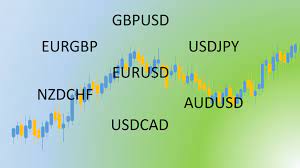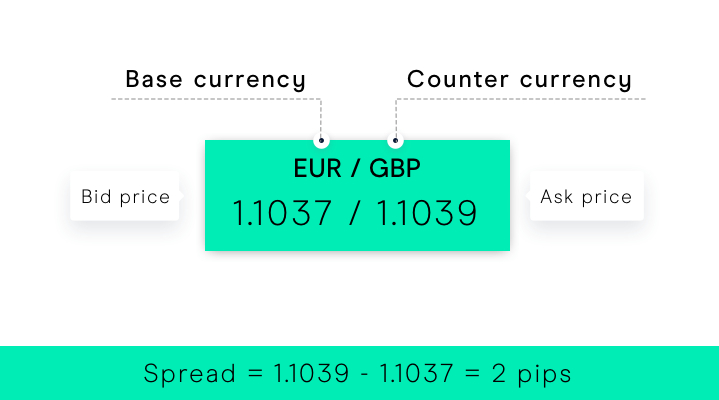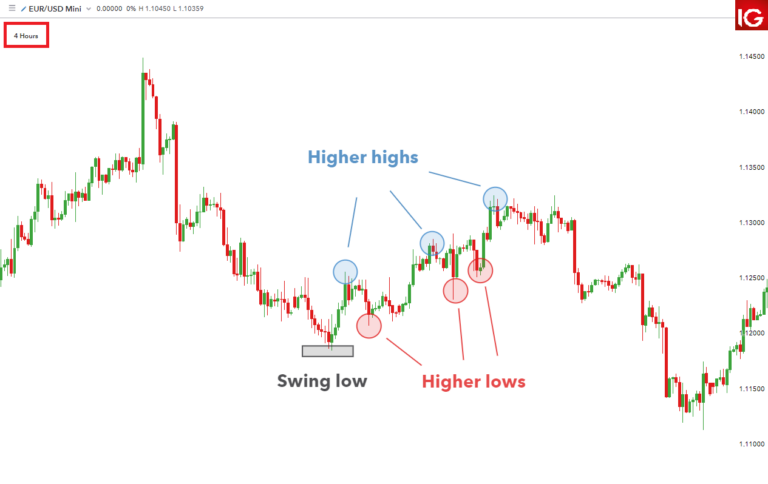Emotional intelligence (EI) plays a crucial role in the success of forex trading. While technical analysis and market knowledge are essential, the ability to understand and manage emotions is equally important. In this article, we will explore the significance of emotional intelligence in forex trading, common emotions experienced by traders.
Their impact on trading decisions, strategies for managing emotions, the importance of self-awareness and mindfulness, techniques for regulating emotions, the role of emotional discipline in trading success, seeking support for emotional management, and case studies of successful traders who mastered their emotions. By embracing emotional intelligence, traders can enhance their profitability and overall success in the forex market.
The Importance of Emotional Intelligence in Forex Trading
Emotional intelligence refers to the ability to recognize, understand, and manage one’s own emotions, as well as those of others. In forex trading, where decisions are often made under pressure and uncertainty, EI is crucial for maintaining composure, making rational choices, and avoiding impulsive actions. Traders with high emotional intelligence are better equipped to handle the psychological challenges of trading and are more likely to achieve consistent profitability.
Common Emotions Experienced in Forex Trading
In the fast-paced world of forex trading, emotions often run high, influencing traders’ decisions and outcomes. Let’s delve deeper into the common emotions experienced in forex trading:
1. Fear: Fear is perhaps the most prevalent emotion among forex traders. It typically stems from the fear of losing money, which is inherent in any form of investment. When traders fear losing their hard-earned capital, they may become overly cautious, hesitating to enter trades or exiting positions prematurely to avoid potential losses. This fear-driven behavior can lead to missed opportunities and hinder traders from realizing their full profit potential.
2. Greed: Greed is another powerful emotion that can drive traders to take excessive risks in pursuit of larger profits. When traders become greedy, they may abandon their risk management strategies and over-leverage their positions, hoping to maximize their returns. However, this reckless behavior often backfires, resulting in significant losses when the market moves against them. Greed can blind traders to the inherent risks in forex trading and lead to impulsive decision-making.
3. Anxiety: Anxiety arises from the uncertainty inherent in forex trading. The constantly changing market conditions and unpredictable price movements can trigger feelings of unease and apprehension among traders. Anxiety may manifest as a fear of making wrong decisions or an inability to cope with market volatility. Traders experiencing anxiety may find it challenging to stay focused and rational, potentially impairing their ability to execute trades effectively.
4. Excitement: Excitement can be both a blessing and a curse in forex trading. While a certain level of excitement is natural and can fuel motivation and enthusiasm, excessive excitement can cloud judgment and lead to impulsive decisions. Traders may become overly optimistic about potential profits, ignoring warning signs and taking unnecessary risks. This overconfidence can result in losses when reality fails to meet expectations.
5. Frustration: Frustration is a common emotion experienced by traders when trades do not go as planned. Despite careful analysis and preparation, trades may sometimes end in losses due to unexpected market movements or execution errors. Frustration can cause traders to deviate from their strategies, seeking revenge trades or making impulsive decisions in an attempt to recoup losses. However, trading out of frustration often exacerbates the situation and leads to further losses.
In summary, forex trading elicits a range of emotions, including fear, greed, anxiety, excitement, and frustration. Recognizing and understanding these emotions is essential for traders to maintain emotional balance and make informed decisions. By managing emotions effectively, traders can improve their chances of success and navigate the challenges of the forex market with confidence and resilience.
The Impact of Emotions on Trading Decisions
Emotions can significantly influence trading decisions, often leading to irrational behavior and poor outcomes. When traders are driven by fear or greed, they may ignore their trading plan, abandon risk management principles, or overtrade. Emotional decision-making can result in losses, missed opportunities, and a cycle of destructive trading behavior. Recognizing the impact of emotions on trading decisions is essential for developing effective strategies to manage them.
Strategies for Managing Emotions in Forex Trading
Managing emotions effectively is crucial for success in forex trading. Here are some strategies to help traders maintain emotional balance and make rational decisions:
1. Develop a Trading Plan: Creating a comprehensive trading plan is fundamental to managing emotions. This plan should outline specific entry and exit criteria based on thorough analysis and research. Additionally, incorporating risk management rules, such as setting stop-loss and take-profit levels, can help mitigate emotional impulses during trades. By adhering to a well-defined plan, traders can minimize emotional decision-making and maintain discipline in their trading approach.
2. Practice Patience and Maintain Long-Term Perspective: Patience is a virtue in forex trading. Recognizing that success in trading takes time and consistent effort can help traders avoid the emotional rollercoaster of short-term fluctuations. By focusing on long-term goals and staying committed to their trading strategies, traders can reduce the impact of momentary setbacks and maintain a more balanced outlook.
3. Take Regular Breaks: Trading can be mentally and emotionally draining, especially during periods of high volatility. Taking regular breaks from the screen allows traders to recharge and regain perspective. Stepping away from the charts for a few minutes or even hours can help reduce stress levels and prevent emotional burnout. Engaging in activities outside of trading, such as exercise or hobbies, can also provide much-needed relaxation and mental clarity.
4. Engage in Relaxation Techniques: Incorporating relaxation techniques into daily trading routines can help manage stress and anxiety. Techniques such as deep breathing exercises, meditation, and visualization can promote calmness and improve focus. Taking a few moments to center oneself before entering trades can help traders make more rational decisions and avoid impulsive actions driven by emotions.
5. Seek Support from Fellow Traders or Mentors: Trading can be a solitary endeavor, but seeking support from fellow traders or mentors can provide valuable emotional relief and perspective. Joining trading communities, forums, or networking groups allows traders to connect with others who share similar experiences and challenges. Sharing insights, seeking advice, and discussing emotional struggles with peers can help traders feel supported and less isolated in their trading journey.
6. Practice Self-Awareness and Reflection: Developing self-awareness is essential for recognizing and managing emotions effectively. Traders should regularly reflect on their thoughts, feelings, and behaviors to identify patterns and triggers that may impact their trading decisions. Keeping a trading journal can be a useful tool for tracking emotional responses to different market conditions and identifying areas for improvement. By increasing self-awareness, traders can gain greater control over their emotions and make more informed decisions.
In conclusion, managing emotions in forex trading requires a proactive approach that combines self-awareness, discipline, and specific techniques. By developing a trading plan, practicing patience, taking breaks, engaging in relaxation techniques, and seeking support from peers, traders can maintain emotional balance and make more rational decisions. Embracing these strategies can help traders navigate the challenges of the forex market with greater resilience and confidence.
Developing Self-Awareness and Mindfulness in Trading
Developing self-awareness and mindfulness in trading is essential for traders to navigate the complex and often emotionally charged landscape of the financial markets. Here’s a closer look at how traders can cultivate these skills to enhance their trading performance:
1. Understanding Self-Awareness: Self-awareness involves having a clear understanding of one’s emotions, thoughts, and behaviors. In trading, self-awareness enables traders to recognize their emotional responses to market events, identify their triggers, and understand how their biases influence their decision-making process. By acknowledging their strengths and weaknesses, traders can make more informed and rational decisions, leading to improved trading outcomes.
2. Practicing Mindfulness: Mindfulness is the practice of being fully present and aware of one’s thoughts, feelings, and sensations without judgment. In trading, mindfulness techniques, such as meditation, deep breathing exercises, and visualization, can help traders cultivate present-moment awareness and reduce stress levels. By learning to observe their thoughts and emotions without reacting impulsively, traders can make more deliberate and strategic decisions in the heat of the moment.
3. Incorporating Meditation and Deep Breathing Exercises: Meditation is a powerful tool for enhancing mindfulness and self-awareness in trading. By dedicating a few minutes each day to meditation practice, traders can quiet their minds, increase their focus, and develop a greater sense of clarity and calmness. Deep breathing exercises, such as diaphragmatic breathing or box breathing, can also help traders regulate their emotions and manage stress effectively. These simple yet effective techniques can be practiced anytime, anywhere, making them valuable tools for traders seeking to maintain emotional balance in the fast-paced world of trading.
4. Engaging in Regular Self-Reflection: Self-reflection is a critical component of self-awareness and mindfulness in trading. Traders can enhance their self-awareness by taking time to reflect on their trading experiences, analyzing their successes and failures, and identifying patterns in their behavior. Keeping a trading journal can be a valuable tool for recording thoughts, emotions, and observations related to trading activities. By regularly reviewing their journal entries, traders can gain valuable insights into their trading psychology, identify areas for improvement, and refine their trading strategies accordingly.
5. Identifying Emotional Patterns and Biases: Self-awareness also involves recognizing recurring emotional patterns and biases that may impact trading decisions. Common biases, such as confirmation bias, overconfidence, and loss aversion, can cloud judgment and lead to suboptimal outcomes. By becoming aware of these biases, traders can take steps to mitigate their influence and make more rational decisions based on objective analysis and evidence.
In conclusion, developing self-awareness and mindfulness in trading is essential for traders to navigate the psychological challenges of the financial markets effectively. By cultivating present-moment awareness, practicing mindfulness techniques, engaging in regular self-reflection, and identifying emotional patterns and biases, traders can enhance their emotional intelligence and make more informed and rational trading decisions. Embracing these practices can help traders achieve greater consistency and success in their trading endeavors.
Techniques for Regulating Emotions During Trading
Regulating emotions during trading is crucial for maintaining composure and making rational decisions in the face of uncertainty and volatility. Here are some techniques traders can employ to manage their emotions effectively:
1. Cognitive Strategies: Cognitive strategies involve managing emotions by changing the way one thinks about trading situations. Some effective cognitive techniques include:
- Reframing negative thoughts: Instead of viewing losses as failures, traders can reframe them as opportunities for learning and growth. By shifting their perspective, traders can reduce the emotional impact of setbacks and maintain a positive outlook.
- Challenging irrational beliefs: Traders often hold irrational beliefs about their abilities or the market, such as “I must always be right” or “The market is out to get me.” By challenging these beliefs and replacing them with more realistic and balanced perspectives, traders can reduce anxiety and improve decision-making.
- Focusing on objective data: Emotions can cloud judgment and lead to impulsive decisions based on subjective interpretations. By focusing on objective data and technical analysis, traders can make more reasoned and disciplined trading decisions, minimizing the influence of emotions on their trading strategies.
2. Behavioral Techniques: Behavioral techniques involve modifying actions and behaviors to regulate emotions and create a positive trading environment. Some effective behavioral techniques include:
- Implementing trading rituals: Establishing pre-trade rituals, such as visualization exercises or relaxation techniques, can help traders get into the right mindset before entering the market. These rituals signal to the brain that it’s time to focus and can help reduce stress and anxiety.
- Practicing resilience: Resilience is the ability to bounce back from setbacks and adapt to changing circumstances. Traders can build resilience by accepting that losses are a natural part of the trading process and learning from their mistakes. By adopting a growth mindset and viewing challenges as opportunities for improvement, traders can reduce emotional reactivity and maintain confidence in their trading abilities.
- Accepting losses: Losses are inevitable in trading, and dwelling on them can lead to emotional distress and clouded judgment. By accepting losses as part of the trading journey and refraining from taking them personally, traders can maintain emotional equilibrium and focus on executing their trading plan effectively.
In conclusion, regulating emotions during trading requires a combination of cognitive and behavioral techniques. By reframing negative thoughts, challenging irrational beliefs, and focusing on objective data, traders can manage their emotions more effectively and make rational trading decisions. Implementing trading rituals, practicing resilience, and accepting losses as part of the process can also help traders maintain emotional balance and achieve greater success in their trading endeavors.
The Role of Emotional Discipline in Successful Trading
Emotional discipline is the ability to remain calm, focused, and consistent in the face of adversity. Successful traders exhibit emotional discipline by adhering to their trading plan, managing risk effectively, and avoiding impulsive behavior. They understand that emotions are a natural part of trading but do not let them dictate their actions.
By maintaining emotional discipline, traders can make objective decisions based on logic and analysis, rather than fear or greed, increasing their chances of success in the long run.
Seeking Support and Resources for Emotional Management in Trading
Managing emotions in trading can be challenging, and traders may benefit from seeking support and resources to enhance their emotional intelligence. Joining trading communities, attending workshops or seminars, and working with a trading coach or therapist can provide valuable insights and guidance. Online forums, books, and educational materials on psychology and trading psychology can also offer practical strategies for managing emotions and improving performance.
Case Studies of Successful Traders Who Mastered Their Emotions
Numerous successful traders have demonstrated the importance of emotional intelligence in achieving consistent profitability. For example, legendary investor Warren Buffett is known for his calm demeanor and disciplined approach to investing, which have enabled him to navigate market fluctuations successfully. Similarly,
George Soros, one of the most successful forex traders of all time, emphasizes the importance of emotional control and risk management in trading. By studying the strategies and mindset of these traders, aspiring traders can learn valuable lessons about the role of emotional intelligence in trading success.
Conclusion: Embracing Emotional Intelligence for Profitable Forex Trading
In conclusion, emotional intelligence is a critical factor in forex trading success, influencing decision-making, risk management, and overall performance. By understanding common emotions, developing self-awareness and mindfulness, and implementing strategies for managing emotions, traders can enhance their profitability and resilience in the forex market.
Cultivating emotional discipline, seeking support, and learning from the experiences of successful traders are essential steps in embracing emotional intelligence for profitable trading. Ultimately, by mastering their emotions, traders can achieve greater consistency and success in their trading endeavors.
Read our latest article on Arbitrage
FAQs
. What is emotional intelligence, and why is it important in forex trading?
- Emotional intelligence refers to the ability to recognize, understand, and manage one’s own emotions. In forex trading, it is crucial for making rational decisions, managing risk effectively, and maintaining composure in volatile market conditions.
2. What are some common emotions experienced in forex trading?
- Common emotions in forex trading include fear, greed, anxiety, excitement, and frustration. These emotions can influence trading decisions and impact overall performance.
3. How can traders manage their emotions effectively during trading?
- Traders can manage their emotions by developing self-awareness, practicing mindfulness techniques, implementing cognitive strategies to reframe negative thoughts, and employing behavioral techniques such as visualization and relaxation exercises.
4. Why is it important to have a trading plan?
- A trading plan helps traders define their entry and exit criteria, establish risk management rules, and maintain discipline in their trading approach. Following a plan reduces emotional impulses and provides a framework for making objective decisions.
5. What role does self-awareness play in trading?
- Self-awareness is the foundation of emotional intelligence and involves recognizing one’s emotions, triggers, and biases. By being mindful of their thoughts and feelings, traders can better control their reactions and make more reasoned decisions.
6. How can traders practice mindfulness in trading?
- Traders can practice mindfulness through techniques such as meditation, deep breathing exercises, and visualization. These practices help cultivate present-moment awareness and reduce stress levels, enabling traders to make more deliberate and strategic decisions.
7. What are some common cognitive strategies for regulating emotions during trading?
- Cognitive strategies for regulating emotions include reframing negative thoughts, challenging irrational beliefs, and focusing on objective data rather than subjective interpretations. These techniques help traders maintain emotional balance and make more rational trading decisions.
8. How can traders implement behavioral techniques to manage emotions?
- Traders can implement behavioral techniques such as establishing trading rituals, practicing resilience, and accepting losses as part of the trading process. These techniques help create a positive trading environment and reduce emotional reactivity.
9. Why is it important to accept losses as part of the trading journey?
- Accepting losses as part of the trading journey helps traders maintain emotional equilibrium and focus on executing their trading plan effectively. By refraining from taking losses personally, traders can bounce back from setbacks and adapt to changing market conditions.
10. How can traders seek support for managing emotions in trading?
- Traders can seek support from fellow traders, mentors, or trading communities to gain insights, share experiences, and receive guidance on managing emotions effectively. Additionally, attending workshops or seminars and accessing online resources on trading psychology can provide valuable support and resources for emotional management.
Click here to read more on Emotional Intelligence





